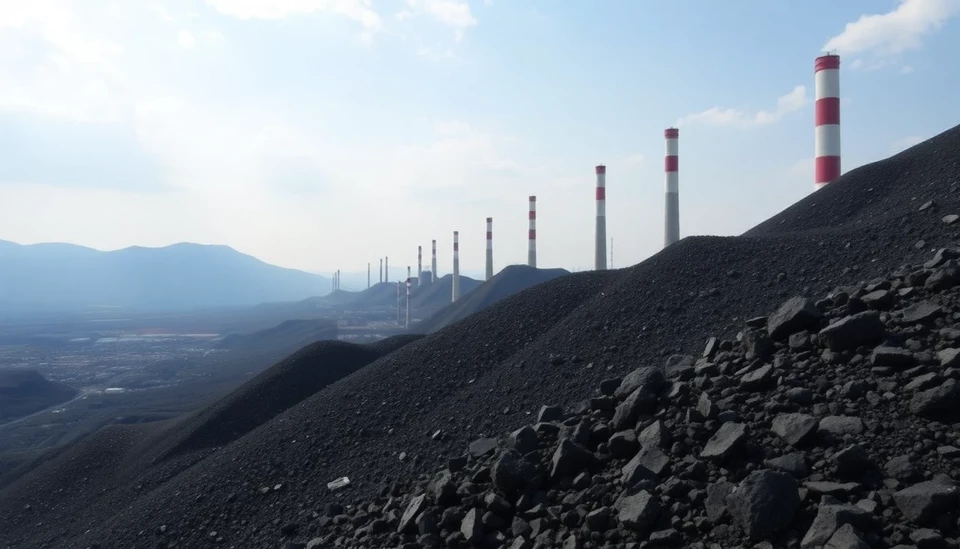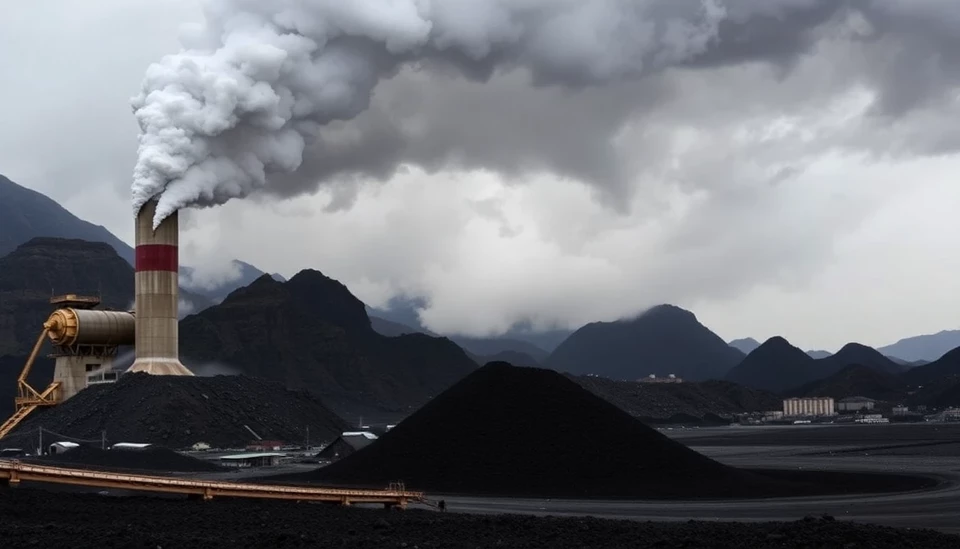
In a surprising turn of events, the coal market is staging a notable rally, drawing significant attention from analysts and investors alike. This resurgence comes despite the global push towards decarbonization and the ongoing shift to cleaner energy sources. After enduring a prolonged period of low prices driven by decreased demand and environmental concerns, coal is once again capturing market interest, with prices escalating in recent weeks.
As winter approaches, the demand for coal is expected to rise, particularly in regions where alternative energy supplies are less reliable or still under development. In some countries, particularly in Asia and Europe, coal remains a cornerstone of energy production, fulfilling regional demand for heat and electricity. This has led to a surge in prices, particularly for thermal coal, which is used specifically for power generation.
The recent price increases can be attributed to several factors, including supply chain disruptions, extreme weather conditions affecting energy production, and geopolitical tensions that are influencing energy policy and availability. As countries grapple with energy security and the need to balance environmental commitments with immediate energy demands, coal has found a renewed role in the energy mix.
Market analysts have noted that several key coal-exporting nations are struggling to meet the rising demand. In the United States, for example, production levels have not kept pace with the rebounding demand for coal, contributing to upward pressure on prices. Similarly, Australia, one of the world's largest coal exporters, has faced its share of challenges, including labor shortages and logistical constraints, emphasizing the fragility of the supply chain in the face of growing global demand.
Adding to the complexity of the situation is the global energy crisis triggered by events such as the ongoing conflict in Ukraine, which has disrupted natural gas supplies to Europe, leading countries to seek alternative energy solutions. In this context, coal is increasingly viewed as a necessary stopgap measure to ensure energy reliability, despite its reputation as one of the dirtiest fuels available.
Analysts predict that as countries plan for energy security this winter, coal prices may continue to rally. However, they also caution that this could provoke longer-term concerns about climate commitments and sustainability. The duality of needing coal for immediate energy needs while simultaneously striving to transition to cleaner energy sources raises critical questions for future policy decisions.
With the energy landscape in flux, investors are closely watching the coal market for signs of stability and potential growth opportunities. While the long-term outlook for coal remains uncertain due to global climate initiatives, the immediate market dynamics indicate a potential window for profit, albeit fraught with ethical considerations regarding environmental impacts.
The rally in coal prices serves as a stark reminder of the challenges facing the global energy sector—a balancing act between meeting current demands and transitioning towards a more sustainable future. As we head deeper into the winter months, how major economies navigate this dilemma will be crucial in shaping the future of energy production and consumption.
As the situation evolves, stakeholders from various sectors will undoubtedly keep a close eye on the coal market, weighing the benefits of short-term gains against long-term environmental goals and policies.
#CoalMarket #EnergyCrisis #SustainableEnergy #PriceRally #GlobalEconomy
Author: Peter Collins
